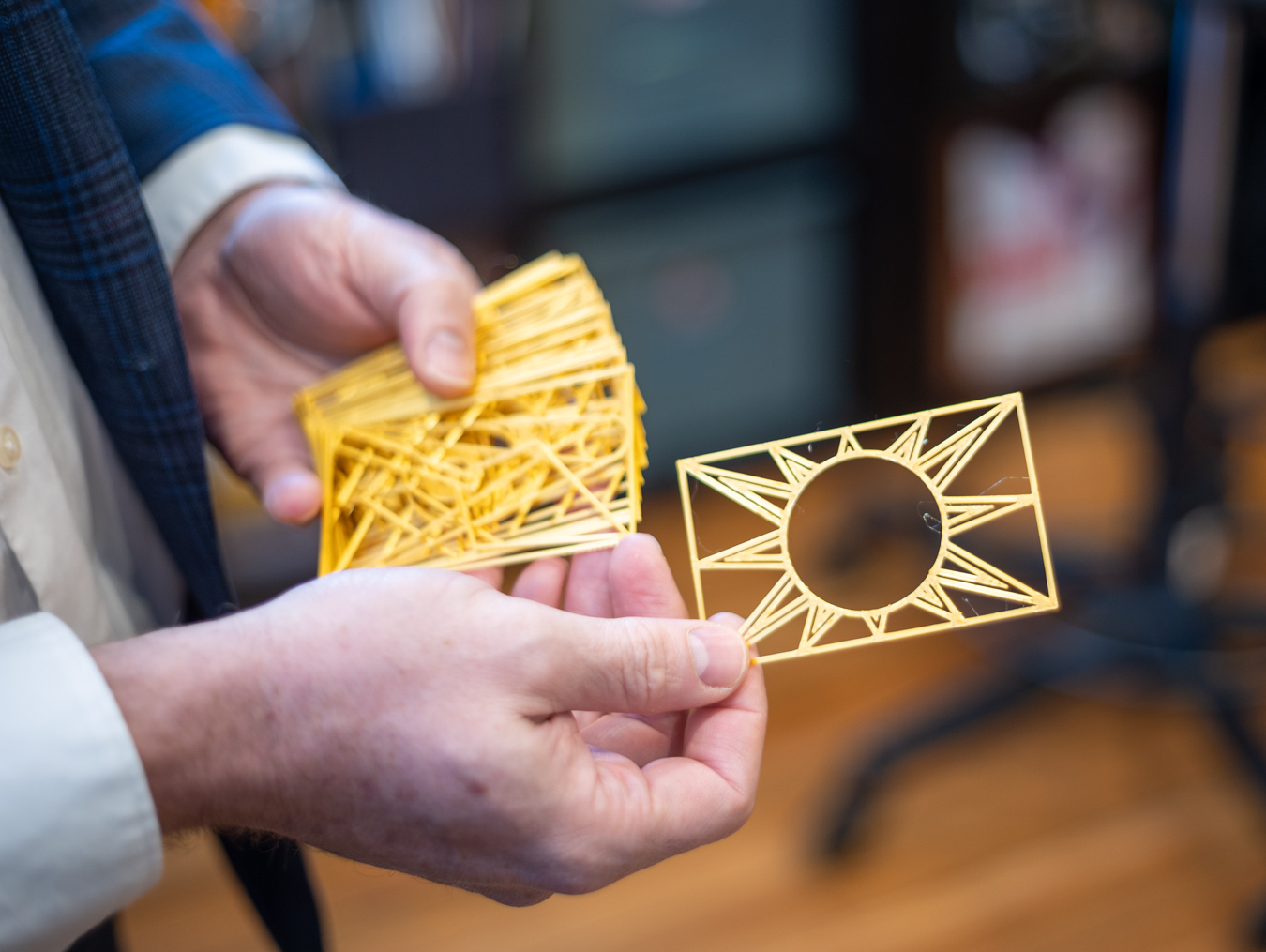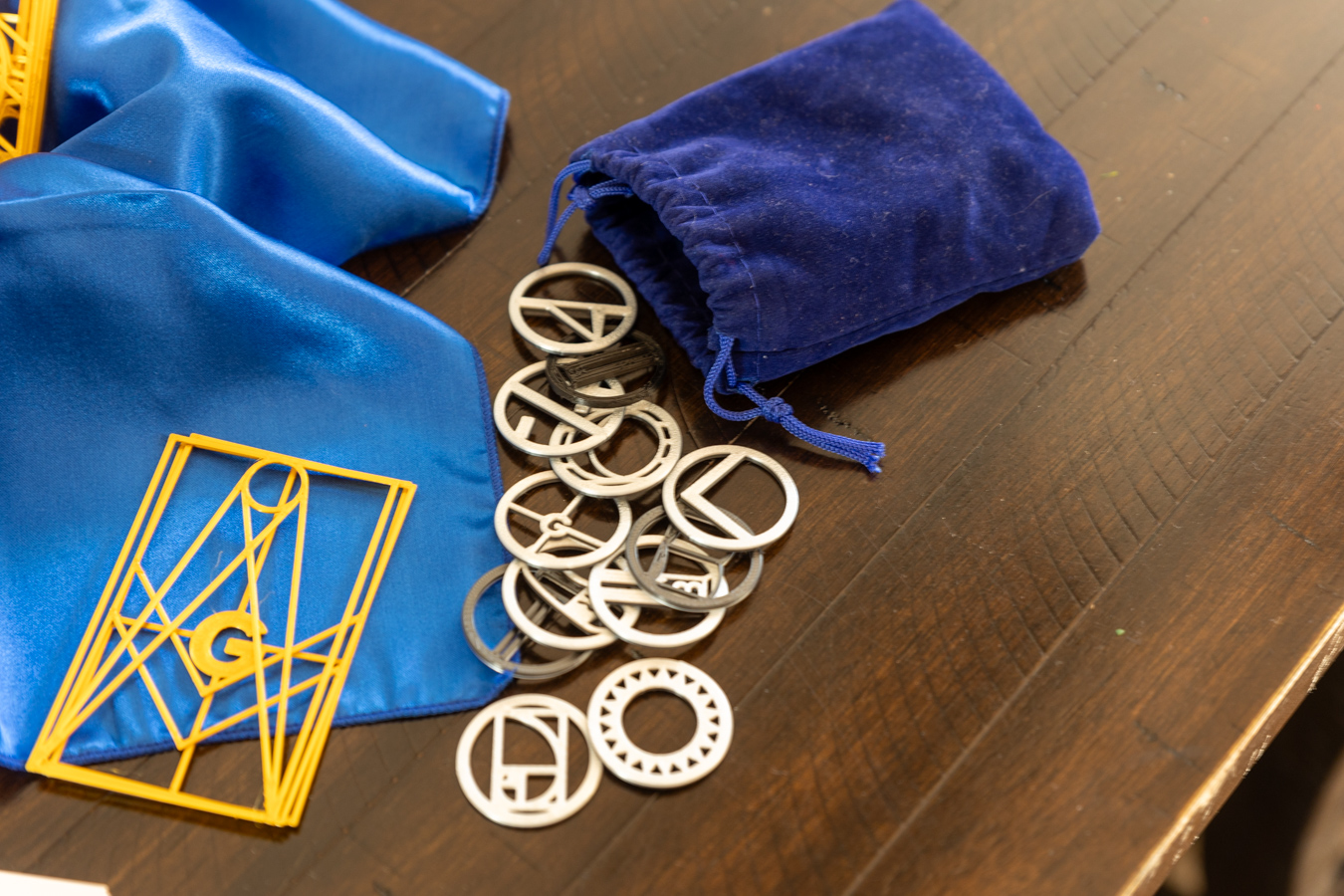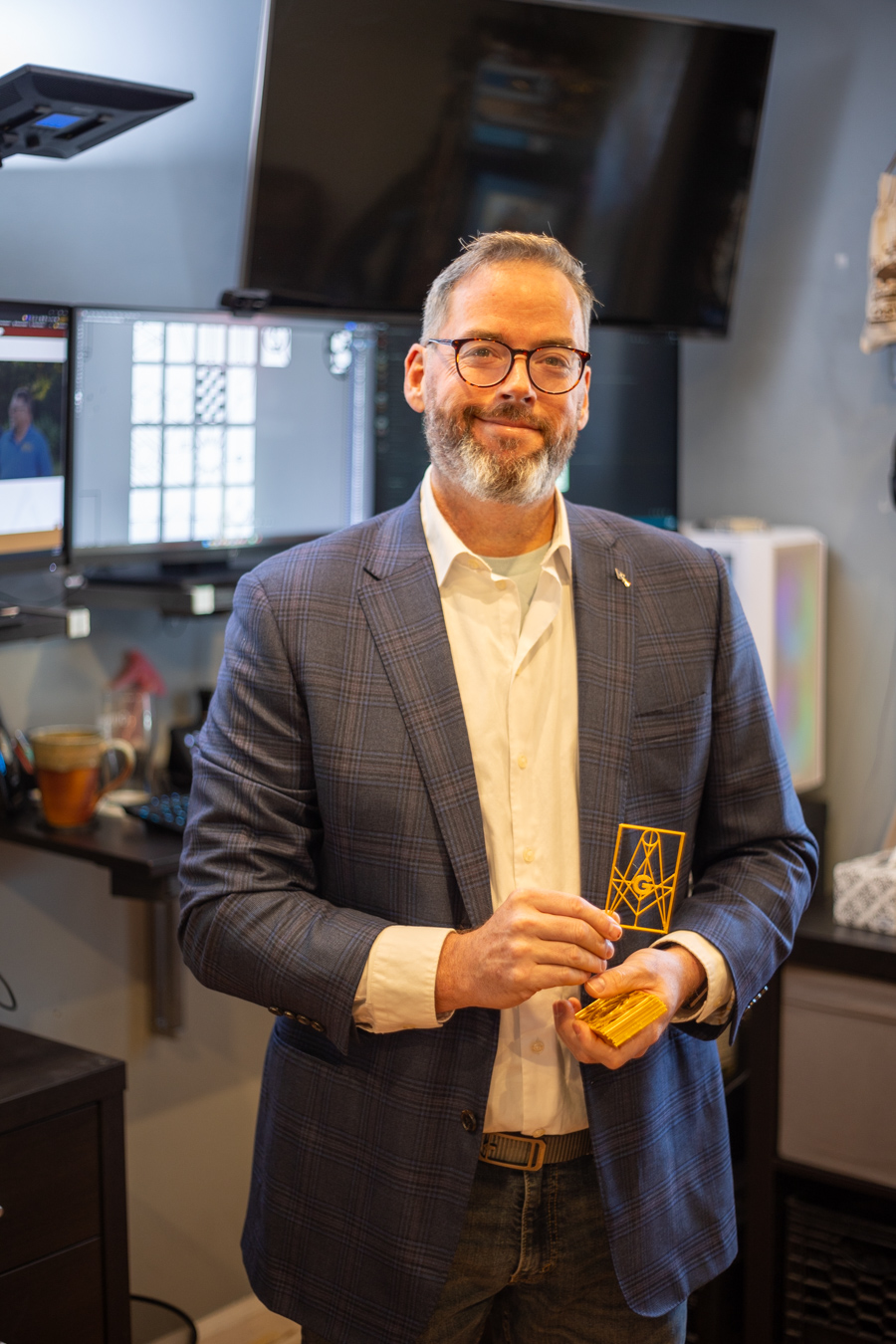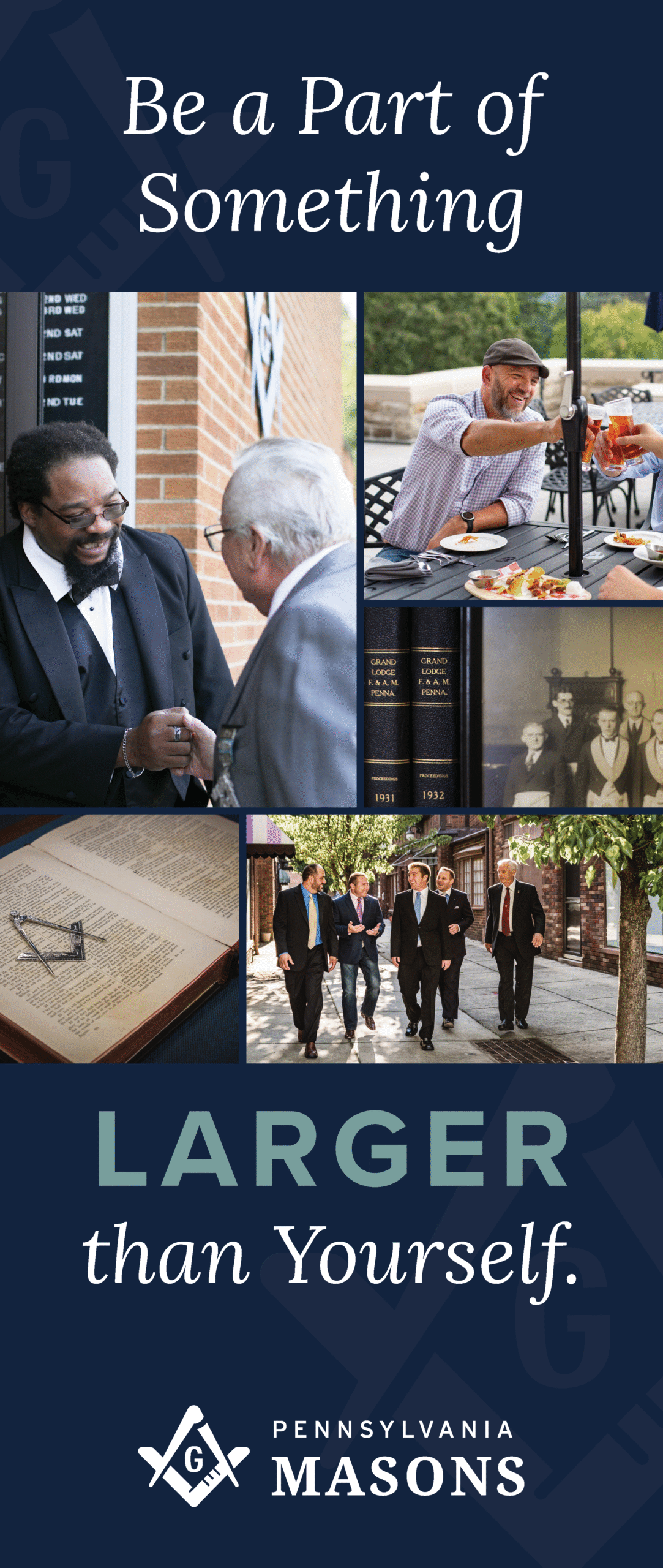Masonic Cards, Coins and Conversation
In his podcast, “A Mason’s Work,” Brother Brian T. Mattocks, P.M., Cassia Mt. Horeb Lodge No. 273, Ardmore, discusses the practical applications of Masonic symbolism and how the tools can be used to better yourself, your lodge and your community.
Soon after becoming Worshipful Master, Brian gifted brothers with a 3D printed tarot deck of cards, each with a Masonic symbol, and a companion booklet explaining how to use them. He challenged members to think about the Masonic symbols in a new way and with deeper meaning.
“I made the cards so the symbols of Freemasonry might more easily be applied to the challenges one faces in everyday life,” he said. “The degrees convey the vocabulary, but the printed symbols facilitate the use of those concepts.”
Standard Masonic images like the gavel, the trowel and the compasses can be used to solve real world problems, such as controlling your diet, for example. In Freemasonry, the compasses symbolize “boundaries,” and when applied to the problem, could mean the need to restrain your desire to eat certain foods that are bad for you, Brian said.
“There are tons of different ways to solve complex problems throughout your Masonic journey,” he said. “These tools were always designed for practical application. I pick a tool every couple of months that I want to work on, and I share that with my lodge brothers.
That’s one of the huge benefits of Freemasonry – having the fellowship of folks in a room so you don’t have to do this work alone.”
Brian said he was inspired to create the Masonic tarot cards after watching an online presentation by the Academy of Masonic Knowledge on the history of tarot. He realized that the symbols of Freemasonry could be used in a similar way.
Brian also shared the tarot deck with the hosts of the Masonic Lite Podcast, a program billed as “an unstuffy, conversational and humorous approach to understanding our Craft,” and he was asked to be a guest on the show.
One of the topics he discussed was the need to facilitate honest and open conversations during lodge meetings, providing members with useful information they can take back with them to improve as men. The conversations stimulate discussion and make the meeting more engaging than, say, a standard presentation on Masonic history.
“It took a while to build the trust level to a point where we could have the harder conversations, but the harder conversations are where the fun stuff is,” Brian said. “We’re now a lodge that can talk to each other about issues. It’s not perfect, but you get to know each other in a whole different way.”
Brian wants to continue building on the momentum he started at lodge by offering training programs and counseling services to members, thereby “making Freemasonry real and practical.” He continues to refine the tarot cards (he recently created 3D printed coins for daily reflections, while the cards lend themselves to a deeper reflection).
Brian became a Mason about 10 years ago, after having a conversation with his father, who was also a Mason, but had become disengaged. After a friend invited him to join another lodge, Brian decided to do it, with the mindset, “If I want the lodge to help me grow, I need to help it change and evolve.” Soon after joining his lodge,
Brian, a small business consultant, began contributing his talents. He worked with the Grand Lodge to set up and emcee office hours for lodges that needed extra help with their audits. He is developing a training program to help brothers better understand lodge finances.
“We’re creating it as an on-demand solution for new officers to pick up what they need to know without taking up a whole day in travel and training,” he said. “It should be a good field guide for the basics and a go-to manual when lodges get stuck.”
Brother Ron Bellamy, Cassia-Mount Horeb Lodge No. 273, Ardmore, a Mason for more than 35 years, said he’s inspired to come to meetings knowing that brothers will engage in important discussions. The 10-to-15-minute conversation is a highlight for Ron, and he likes that it’s not part of official business [the meeting is closed for this purpose].
“You feel like you can be a little freer, open and direct in your comments if it’s not part of an official lodge meeting,” Ron said. “We have social activities, where you get to know your brothers on a surface level, but these conversations up the ante a little more. People share their thoughts and experiences. It helps with our Masonic journey.”
Brian said his mission – with both the lodge conversations and the 3D printed cards – is to help Freemasonry deliver on the promise of “making good men better.”
“I’ll keep trying to find new ways to do that for the rest of my life,” he said. “Now it’s cards, coins and conversation – next year, it will be organization design and business startups for Masons.”
Listen to this Masonic Lite interview with Brian at MasonicLite.PodcastPage.io or by scanning the QR code below.
Listen to Brian’s podcast: A Mason’s Work Podcast – Apple Podcasts
For more information on what Brian offers, visit AMasonsWork.com.





